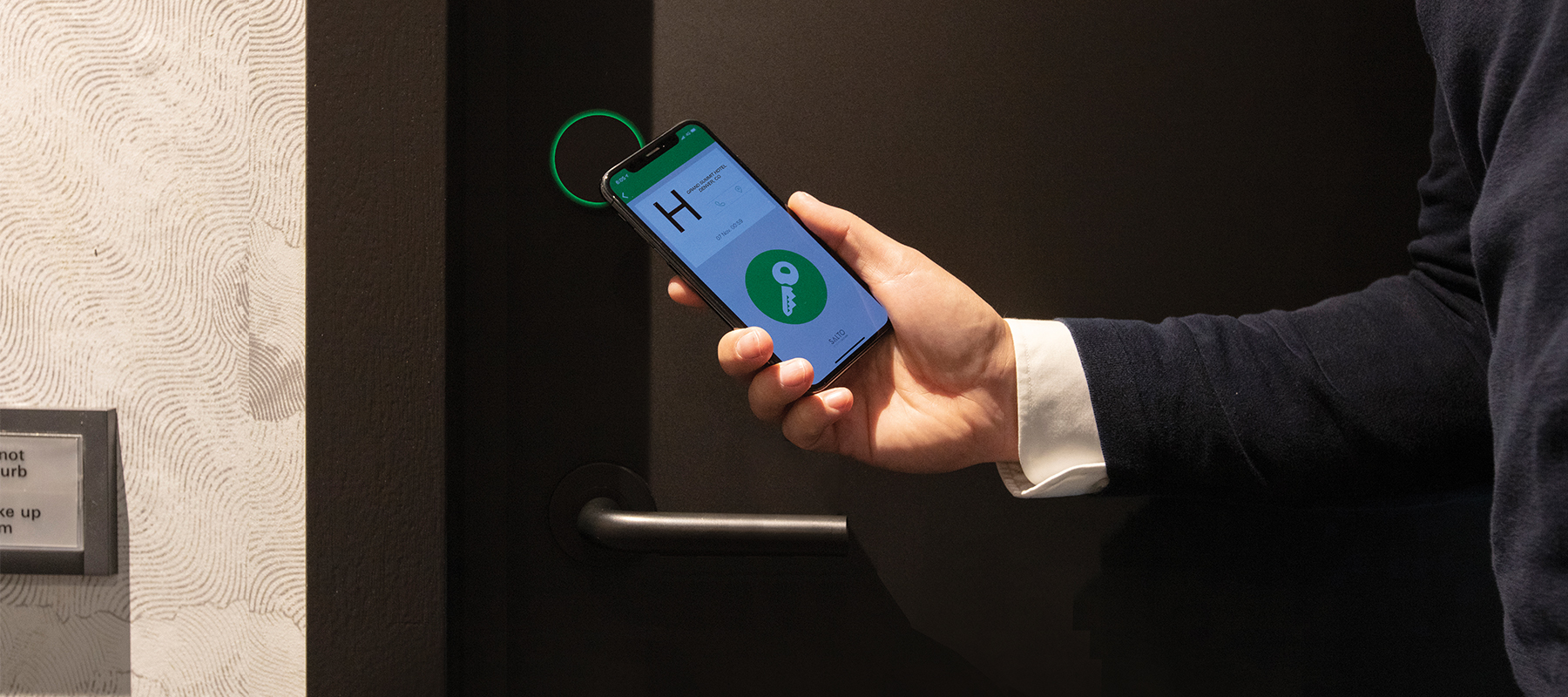Digital guest keys have come of age, overcoming many early hurdles, including technical issues, compatibility, and user adoption. Today, digital keys, accessed through a guest's smartphone, are becoming commonplace at upscale hotels and resorts and are expected to boom in popularity over the next few years. Research suggests that by 2025, mobile key adoption rates could soar above 70% in hotels worldwide. This shift is indicative of a broader trend: as people become increasingly reliant on their smartphones for a myriad of daily tasks, mobile keys are poised to become the new standard in the hospitality sector.
Enhancing Guest Experience and Efficiency
Cornell University’s School of Hotel Administration has highlighted the impact of waiting times on guest satisfaction, noting that a mere five-minute delay at check-in can cut guest satisfaction by as much as 50%. The advent of online check-in, coupled with the deployment of digital room keys, offers a solution. This technology allows guests to skip the front desk entirely and head straight to their rooms, significantly enhancing their overall experience by saving time and reducing stress.

Beyond Convenience: Safety and Operational Benefits
Digital keys offer more than just convenience; they are a cornerstone for enhancing guest safety and streamlining hotel operations. Their integration with smart home technology and the Internet of Things (IoT) is particularly noteworthy. Modern hospitality apps, when used in conjunction with mobile keys, enable guests to control various aspects of their room environment, such as lighting, temperature, and entertainment systems, directly from their smartphones. This integration creates a unified, seamless experience, allowing guests to unlock their rooms, adjust settings, and access hotel amenities through a single application.

For hoteliers, the transition to digital keys represents a dual benefit. Not only does it streamline the check-in process, but it also frees up staff to focus on providing more personalized and attentive service to guests. As technological advancements continue, it's clear that digital keys are set to become a standard feature in the hospitality industry, linking every aspect of the guest experience together.
Digital key technology represents an important step forward for the hospitality industry. The advantages for both hotels and guests ensure that mobile keys will play a key role in the industry's future.

Security Advantages of Digital Keys
Security and privacy are paramount in the digital age, and digital keys excel in these areas. Traditional keys and plastic key cards are prone to being copied, lost, or stolen. In contrast, digital keys offer a higher level of security, as access is granted through guests' smartphones, which are usually protected by passcodes or biometric authentication. Advanced encryption protocols ensure that digital keys are unique to each guest and securely managed, mitigating the risk of unauthorized access.
"Our priority at Salto, is to empower our hotel customers to deliver an outstanding and secure guest experience, by leveraging cutting-edge security features and ensuring the highest standards of safety," says Roland Smith, Hospitality Industry Solutions Leader at Salto.
Economic and Environmental Impacts
Beyond enhancing security, digital keys are also economically beneficial for hotels. They reduce the need for front desk staffing and lower the overall cost of key management. Physical keycards, which can cost hotels between $2 and $10 each, are replaced by digital keys, which incur virtually no marginal cost. This shift not only saves money but also aligns with environmental sustainability efforts by reducing plastic waste.

The transition to mobile keys, while initially challenging due to upfront costs and training requirements, is a strategic investment for the future of the hospitality industry. Digital keys promise to improve the guest experience by making hotel stays more efficient, personalized, and secure.
Unlocking the Future: A Transformative Trend in Hospitality
Mobile keys are an exciting innovation for the hospitality industry that provides numerous benefits for hotels and guests. While switching to mobile keys involves challenges like upfront costs and learning curves, the long-term benefits make it a worthwhile investment.
In conclusion, the shift towards mobile room keys in the hospitality industry is a trend driven by the growing dependency on smartphones and the demand for seamless, secure, and efficient guest experiences. Digital keys are transforming hotels into smarter, more connected spaces, where the emphasis is on ease, personalization, and security. As this technology continues to evolve and integrate with other smart systems, its role in reshaping the hospitality landscape will undoubtedly expand, marking a significant step forward in how hotels operate and serve their guests.
The future of hotel access technology is the ability to improve the guest experience and to make hotel operations more efficient—mobile keys make this a reality.
Related Stories
| Aug 11, 2010
Gensler, HOK, HDR among the nation's leading reconstruction design firms, according to BD+C's Giants 300 report
A ranking of the Top 100 Reconstruction Design Firms based on Building Design+Construction's 2009 Giants 300 survey. For more Giants 300 rankings, visit http://www.BDCnetwork.com/Giants
| Aug 11, 2010
Callison strengthens retail design presence with RYA acquisition
Callison LLC on June 1 acquired RYA Design Consultancy, a Dallas-based retail architecture and design firm with offices in New York City. The new “Callison RYA Studio” will merge staff and clients into Callison ’s existing retail practice at their Dallas and New York offices.
| Aug 11, 2010
RSMeans/RCD forecast 14% drop in hospital construction for 2009
RSMeans forecasts a 14% drop in hospital construction in 2009 compared to 2008, with $17.1 billion in registered hospital projects as of June 30, 2009. The Reed Construction Data unit finds renovation of healthcare facilities increasing, from 36% of projects in 2008, to 40% of projects in the pipeline in the first six months of 2009.
| Aug 11, 2010
The Joule Hotel
Dallas, Texas
The Joule Hotel in Dallas, designed by local firm Coburn & Smith, was constructed in 1927 as the Dallas National Bank Building. Originally one of the finest examples of gothic revival architecture in Texas, it had had most of its gothic elements removed over the years after being converted into an office building and later abandoned. What was left had fallen into disrepair.
| Aug 11, 2010
AECOM, WATG top BD+C's ranking of the nation's 75 largest hotel design firms
A ranking of the Top 75 Hotel Design Firms based on Building Design+Construction's 2009 Giants 300 survey. For more Giants 300 rankings, visit http://www.BDCnetwork.com/Giants
| Aug 11, 2010
ASHRAE introduces building energy label prototype
Most of us know the fuel efficiency of our cars, but what about our buildings? ASHRAE is working to change that, moving one step closer today to introducing its building energy labeling program with release of a prototype label at its 2009 Annual Conference in Louisville, Ky.
| Aug 11, 2010
RMJM unveils design details for $1B green development in Turkey
International architecture company RMJM today announced details of the $1 billion Varyap Meridian development it is designing in Istanbul’s new residential and business district, which will be one of the "greenest" projects in Turkey. The luxury 372,000-square-meter development on a site totalling 107,000 square meters will be located in the Atasehir district of Istanbul, which the Turkish government intends to transform into the country’s new financial district and business center.
| Aug 11, 2010
Urban Land Institute honors five 'outstanding' developments in Europe, Middle East, and Africa
Five outstanding developments have been selected as winners of the Urban Land Institute (ULI) 2009 Awards for Excellence: Europe, Middle East, and Africa (EMEA) competition. This year, the competition also included the announcement of two special award winners. The Awards for Excellence competition is widely regarded as the land use industry’s most prestigious recognition program.
| Aug 11, 2010
Cannon Design’s European-inspired Sparkling Hill Resort breaks ground
Cannon Design, a leading international architectural, engineering and planning firm, is pleased to announce that the firm’s Sparkling Hill Resort and Wellness Hotel in Vernon, BC, has broken ground.







